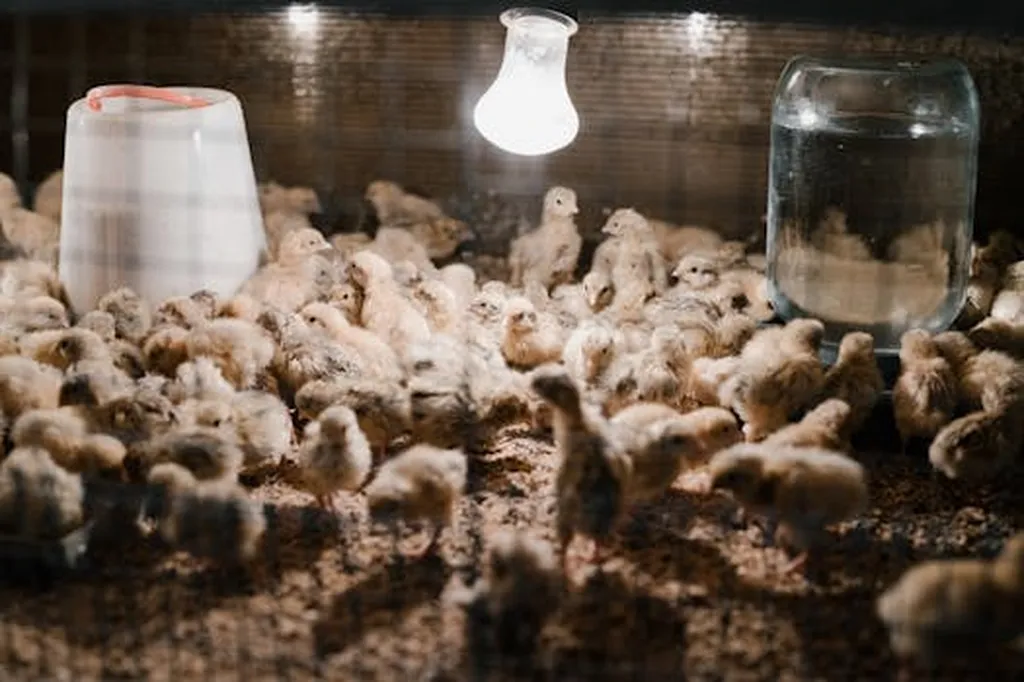In the heart of Nigeria, researchers are uncovering innovative strategies to combat heat stress in broiler chickens, a pressing issue that has long plagued the poultry industry in tropical regions. A recent study led by Aderanti Ifeoluwa Oni from the Animal Physiology Department at the Federal University of Agriculture has shed light on a promising approach that combines early-age feed restriction and thermal conditioning to enhance the resilience of broiler chickens in hot environments.
The study, published in the journal *Scientific Reports* (which translates to “Reports of Science”), explored the synergistic effects of these two interventions on the physiological and performance responses of broiler chickens. The findings reveal that the combination of early feed restriction and thermal conditioning can significantly improve growth performance and antioxidant status in broiler chickens reared in hot tropical environments.
The research involved 240 male Marshall broiler chicks, divided into four treatment groups. One group was raised conventionally, while the others were subjected to either feed restriction, thermal conditioning, or a combination of both. The results were striking: chickens that underwent both thermal conditioning and feed restriction (TCFR) showed significantly higher final body weights compared to the other groups. Additionally, their feed conversion ratio was lower, indicating more efficient feed use.
“Our findings suggest that the use of early-age feed restriction and thermal conditioning could be beneficial in alleviating heat stress in broiler chickens,” Oni explained. “This approach not only improves their growth performance but also enhances their antioxidant status, making them more resilient to heat stress.”
The implications of this research are far-reaching for the poultry industry, particularly in regions with hot climates. Heat stress in broiler chickens is a major challenge, leading to reduced growth rates, lower feed efficiency, and increased mortality. By implementing these interventions, farmers could potentially improve the productivity and welfare of their flocks, leading to significant economic benefits.
Moreover, this study opens up new avenues for research into the physiological mechanisms underlying heat stress and the potential for early-life interventions to enhance thermotolerance. As the global demand for poultry meat continues to rise, finding sustainable and effective ways to manage heat stress in broiler chickens will be crucial.
The research by Oni and his team represents a significant step forward in this area, offering a practical and scientifically validated approach to a longstanding problem. As the poultry industry continues to evolve, the insights gained from this study could shape future developments in animal husbandry and contribute to more sustainable and efficient poultry production systems.
In the words of Oni, “This is just the beginning. There is still much to learn about the complex interactions between early-life experiences and later-life performance in broiler chickens. But our findings provide a strong foundation for further research and practical application.”
As the world grapples with the challenges of climate change and the need for sustainable food production, the work of researchers like Oni offers hope and practical solutions. By harnessing the power of early-life interventions, the poultry industry can take a significant step towards mitigating the impacts of heat stress and ensuring the health and productivity of broiler chickens in tropical regions.

